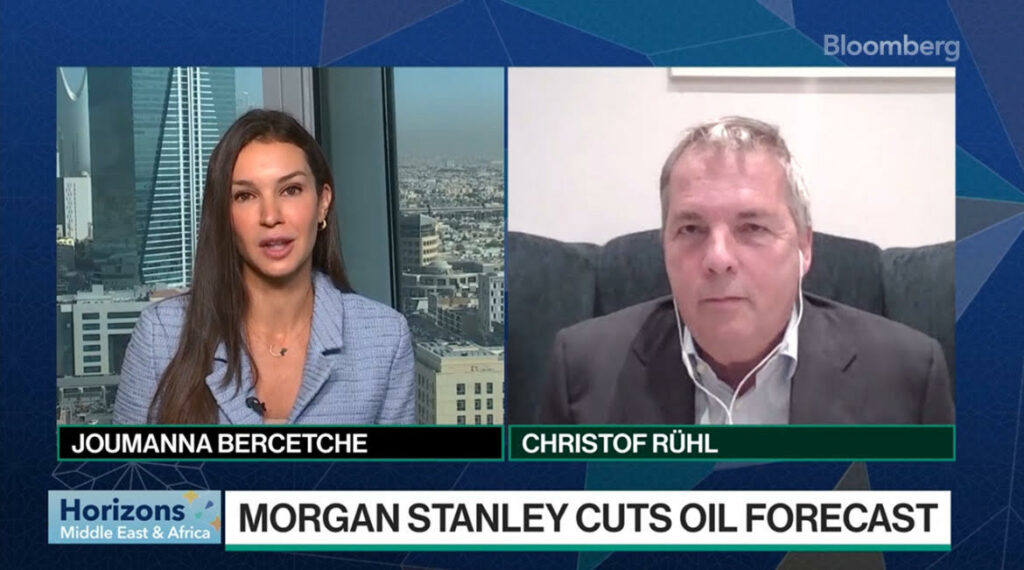In this interview given to Joumana Berteche, Christof Rühl, Senior Research Scholar at the Center of Global Energy Policy at Columbia University and Member of the Advisory Board of Crystol Energy, explains OPEC+’s position amid recent oil market developments.

Key takeaways:
– Oil markets have seen a profound and rather sudden shift in expectations, from excess demand or at least divided opinions to the shared expectation of oversupply next year. The price trend around which geopolitical events are causing oscillations therefore is shifting lower.
– This puts OPEC+ in a difficult situation. The group has a credibility issue to begin with, where a lot of individual members will now be calculating the impact of price versus volume cuts on their revenues; and the group as a whole faces non-OPEC supply growth strong enough to take market share every time it extends aggregate cuts. Healthy non-OPEC supply growth at current prices and the demand for crude oil returning to historic normality, squeeze the ability of OPEC+ ‘s to control prices without accelerating revenue losses. At the same time, this squeeze is a harbinger of things to come when oil demand will plateau or peak.
– Global oil intensity, or the amount of oil needed to produce a Dollar of global economic output, is showing a steady and remarkably persistent and stable trend decline over time. This has been and still is independent of electric vehicle growth. Should this trend continuee unabated, oil demand will plateau or peak toward the end of this decade – even if EVs fail to capture a significant share of the automotive market.
Related Analysis
“Oil markets: Relative stability amid geopolitical strife“, Dr Carole Nakhle, Feb 2024
Related Comments
“Reasons for the decline in oil prices“, Dr Carole Nakhle, Aug 2024
“Growth outside OPEC+ robust“, Dr Carole Nakhle, Jul 2024








